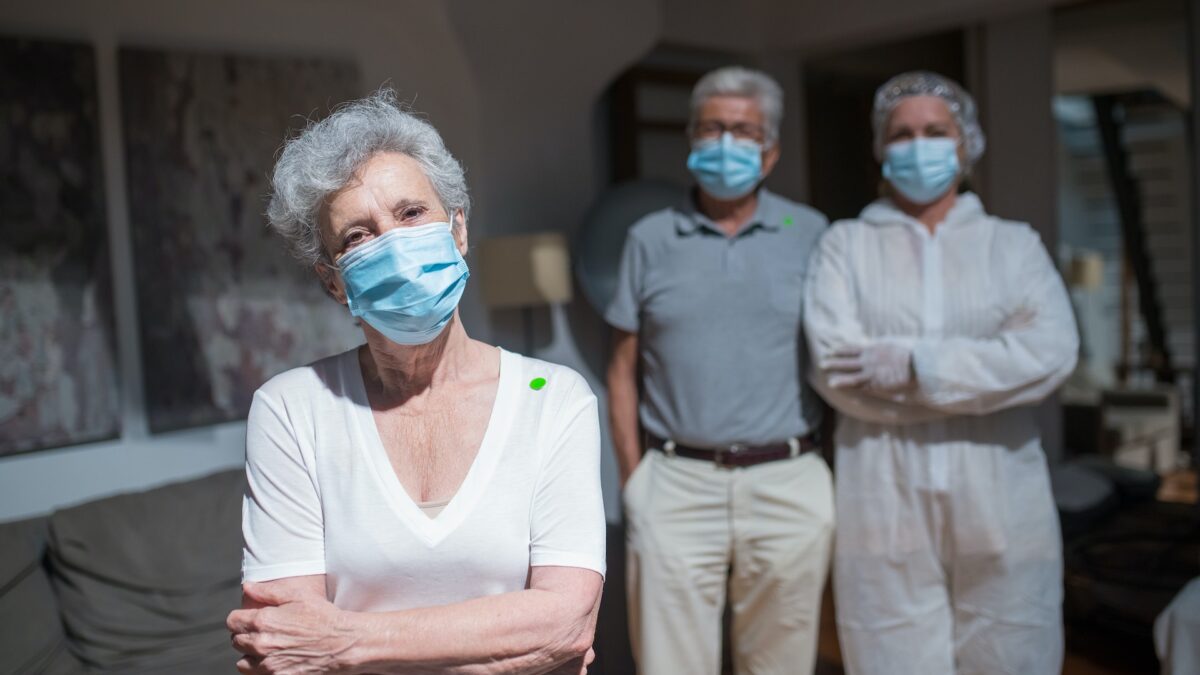President Biden’s long overdue decision to end the Covid-19 public health emergency declaration on May 11 has exposed the big-government activists who used the pandemic to expand and entrench the nanny state.
At the start of the pandemic, the federal government passed a law prohibiting states from removing ineligible individuals from Medicaid until the emergency declaration was ended. In exchange, the federal government picked up a bigger share of the program’s cost at taxpayers’ expense. Medicaid enrollment increased by 25 percent, and the nature of the program changed from a temporary stopgap to something more permanent.
Thanks to the December budget deal, states will finally be allowed to resume checking Medicaid eligibility in April. But the public health emergency should have ended long ago. After all, it was President Joe Biden himself who, back in September, said, “The pandemic is over.” Yet Washington decided to let the emergency linger on even as Americans recognized the crisis had passed.
The reason is obvious. The purveyors of government dependency, to paraphrase Rahm Emanuel, will never let a crisis go to waste if they can use it to further their aims. The continual extensions of the emergency order were not done to enhance public health or address a true emergency but to keep in place a Medicaid expansion the president knew Congress would never make permanent. For these folks, Medicaid is an end in itself.
The prolonged emergency measure has had dire consequences. Medicaid expansion diverted billions of dollars from delivering essential medical care to vulnerable children, the elderly, and the disabled — the people Medicaid was designed to serve. Furthermore, the allure of taxpayer money also drew out scam artists eager to make a fast buck off of federal emergency responses. We witnessed countless examples of fraudsters who swindled the government out of Paycheck Protection Program loans to fund their lavish lifestyles, but the problem is far more catastrophic for taxpayers when the abuse occurs in entrenched government entitlements such as Medicaid rather than temporary programs.
The House Committee on Oversight and Accountability, which is looking into waste, fraud, and abuse in Covid programs, said it has “seen reports that $266 billion in improper payments were made by Medicaid during the pandemic.” That is an outrage, but here’s what happens in the normal course of events with permanent entitlements. In 2022, the Centers for Medicare and Medicaid Services found that federal health programs issued $132 billion in improper payments; Medicaid accounted for 60 percent of the total, with $81 billion in misallocated expenditures. Clearly, the Medicaid program is in dire need of responsible management and oversight.
Naturally, big-government activists measure a program’s success by its enrollment numbers. But policymakers should look beyond total enrollees and begin to assess the program on its ability to deliver quality care with positive patient outcomes. Needy Medicaid recipients face far more limited access to doctors and treatment than those with employer-sponsored insurance because many providers are reluctant to take money-losing government reimbursement rates.
The best thing policymakers can do for the truly needy is to broaden the scope and flexibility of Medicaid benefits. One avenue would be to adopt a solution from my organization’s Personal Option plan and allow lower- and middle-class Americans to set aside a portion of Medicaid benefits directly into health savings accounts at levels that meet the unique personal needs of users and local communities. HSAs allow beneficiaries to build up a health-care nest egg they can use when a medical emergency arises.
Nine in 10 Americans do not have access to HSAs that could meet their needs and expand their medical care options while driving down costs for users and strained state governments. The federal government’s onerous regulations on HSAs have limited their availability to all but the luckiest American workers.
We should strive to deliver the benefits enjoyed by a fortunate minority to Medicaid participants, not swallow the middle class in an entitlement program developed for the neediest Americans. Offering financial assistance for low-income Americans to open an HSA is the best way to give better health-care access to a group that today has very limited choices. Subsidized HSAs would provide lower-income Americans with higher-quality health-care options than they have now.
Biden and other leaders have stressed the need to return to normalcy after the Covid-19 emergency, but policymakers should not settle for the pre-coronavirus status quo. We should look toward reforms that will benefit those in need while unleashing the full potential of the American economy.









